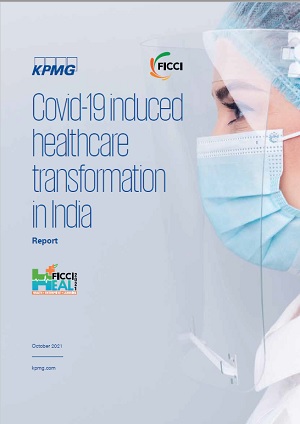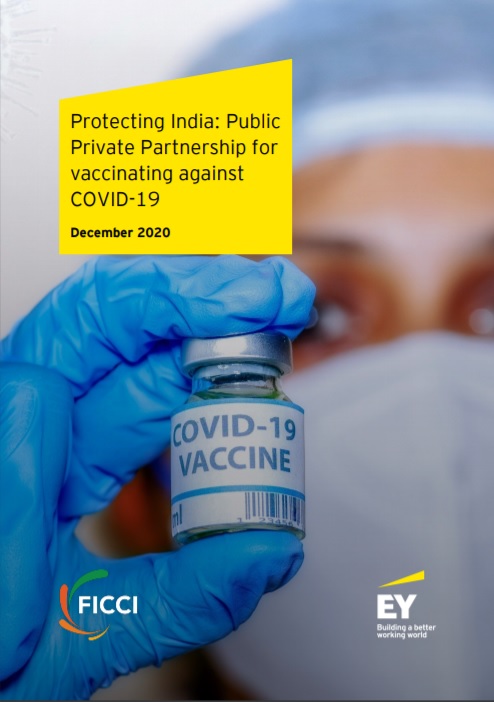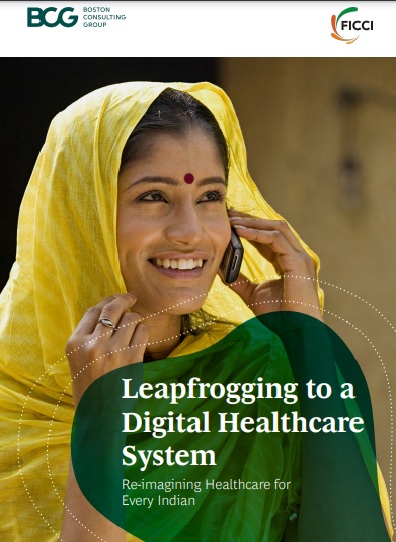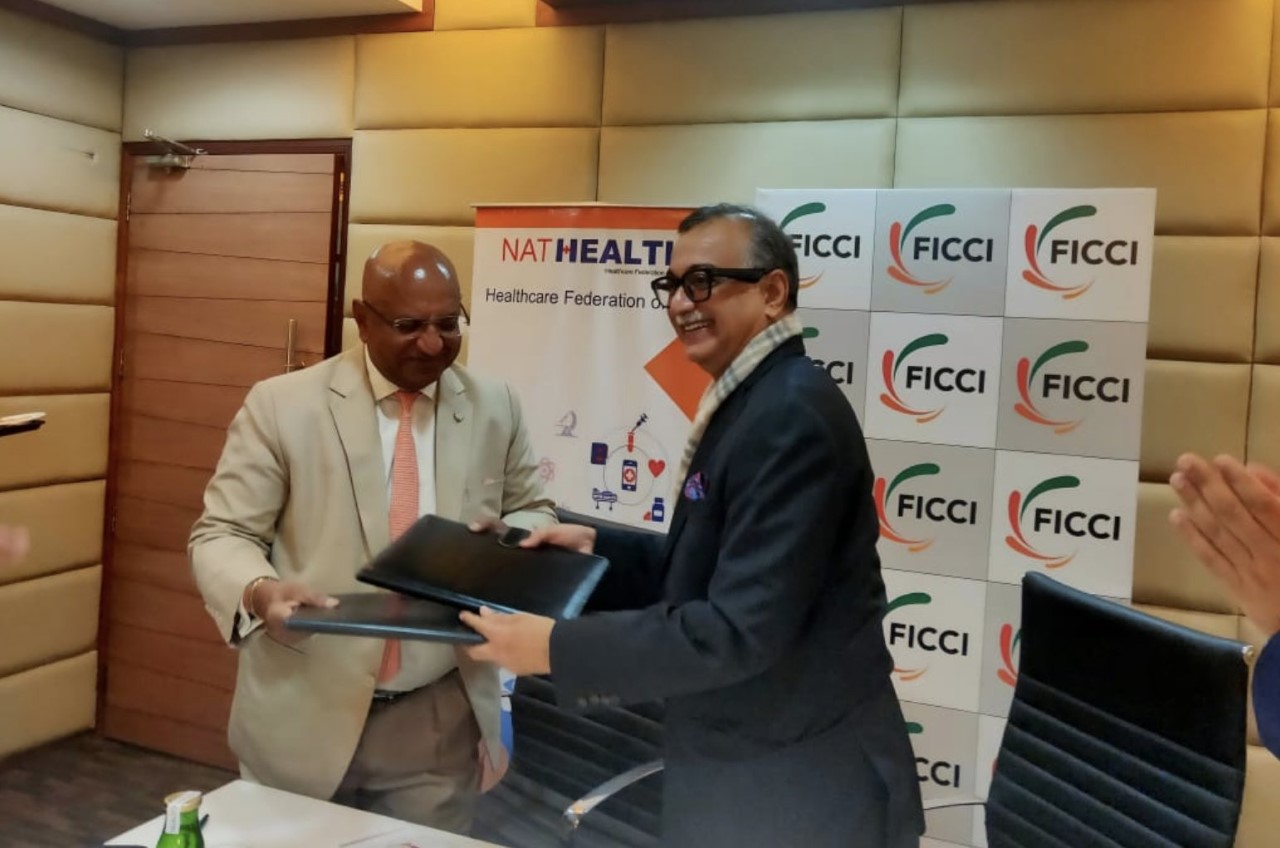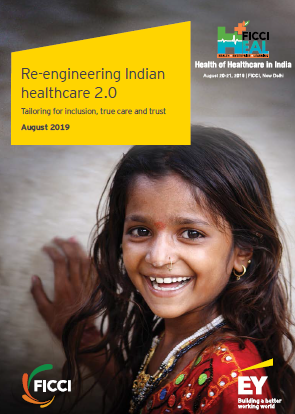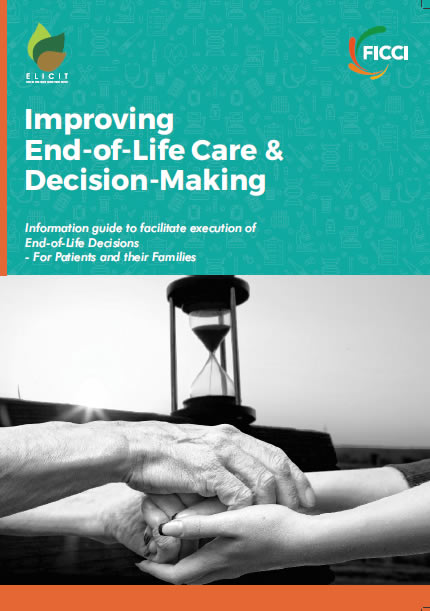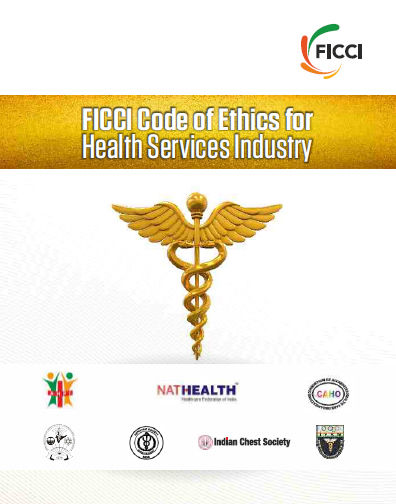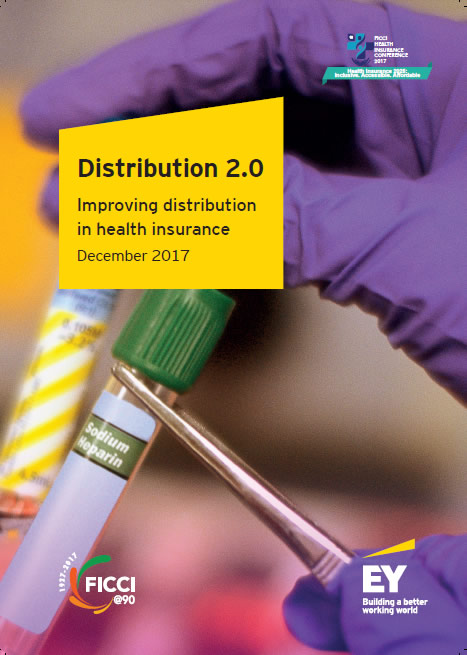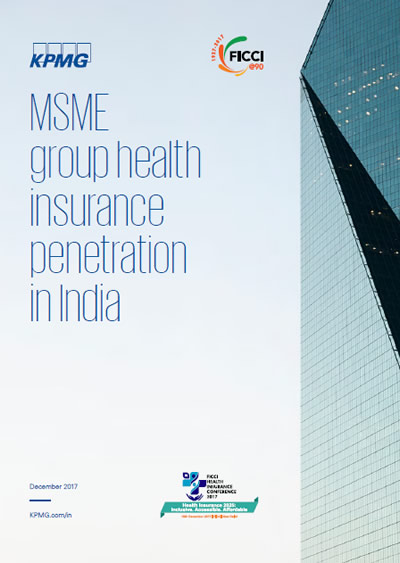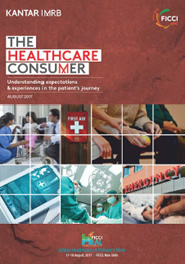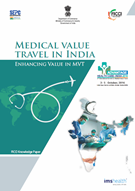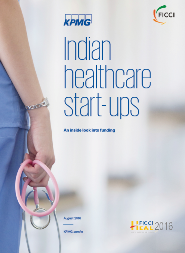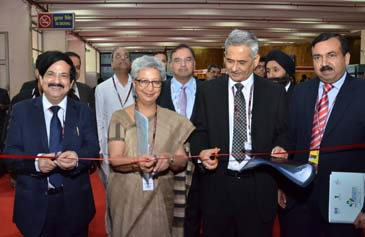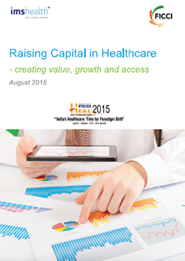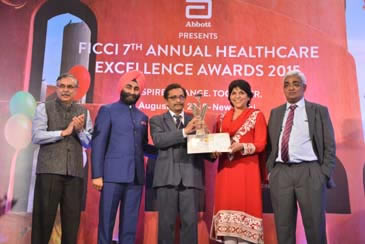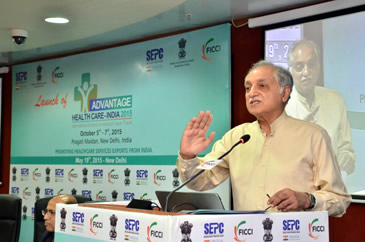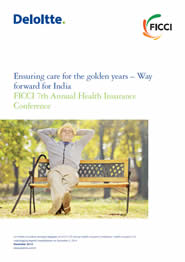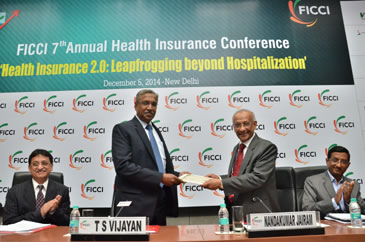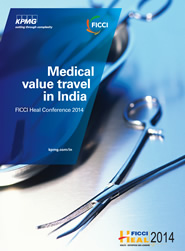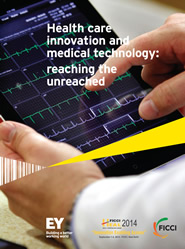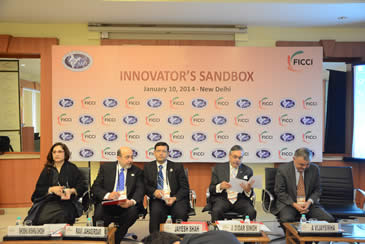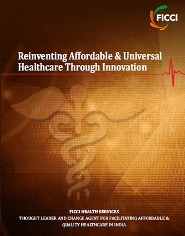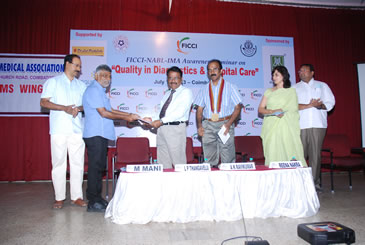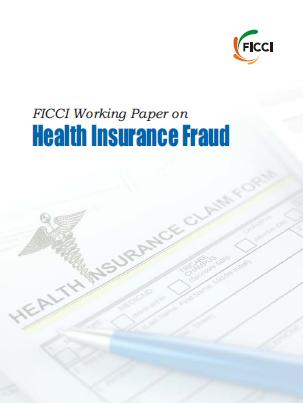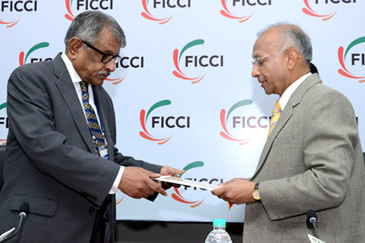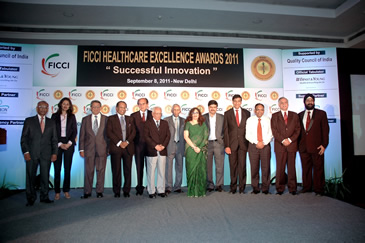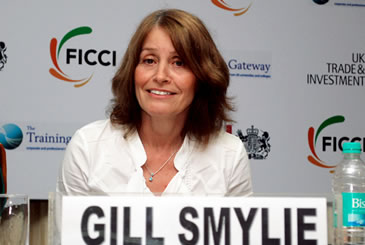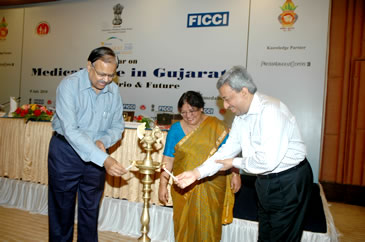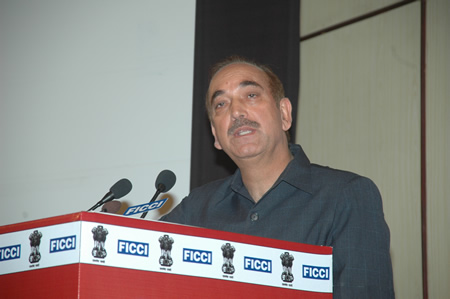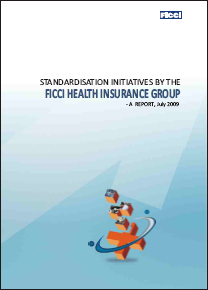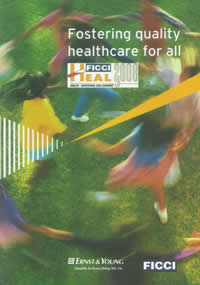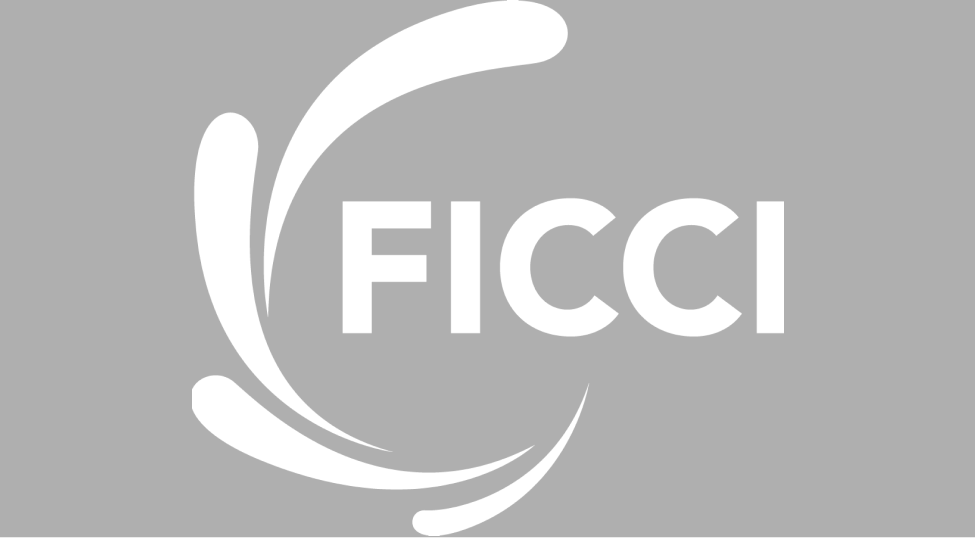The Vice President, Shri M Venkaiah Naidu today emphasised the importance of a healthy body and healthy mind saying “we have to follow the concepts of “Dinacharya” – daily regimes and “Ritucharya” – seasonal regimes to maintain a healthy life.
Inaugurating through a video conference the 14th Edition of FICCI HEAL on the theme “Post COVID Healthcare World–The New Beginning”, the Vice President said the pandemic has taught us the overriding importance of staying healthy, both physically and mentally, the Vice President said and added that fitness coupled with balanced diet was essential to stave off illnesses.
Pointing out that sedentary lifestyle was one of the main culprits behind the growing incidence of non-communicable diseases in the country, he urged people to make any form of physical activity like spot jogging/running/brisk walking/ aerobics and stretching part of their daily routine to remain fit.
He also called upon the doctors and media to create awareness and educate people to stay healthy and fit.
Shri Naidu said Yoga and meditation should become part of daily timetable along with sports in schools and colleges once normalcy returns.
Referring to the event’s theme which talked of new beginning in post-COVID Healthcare World, the Vice President said the new beginning should also be about going back to old habits. “Our ancestors have prescribed us nutrition rich food. We should avoid fast-food and mindless eating”, he added.
Calling upon people to adapt to the culture of the new normal and take all the prescribed precautions seriously to fight COVID-19 pandemic, he said that it was highly critical for the people to act responsibly and support the multifarious efforts of the government and health professionals to break the transmission of the dreaded virus. “We simply cannot allow complacency to set in and lower our guard,” he added.
Maintaining that the nation can not remain in lockdown forever, he referred to the Prime Minister’s statement that life is important but livelihood is also equally important.
Expressing the hope that there would be good news on the vaccine front in the near future, Shri Naidu urged people to wear masks, maintain social distancing and frequently wash hands.
Condemning the instances of stigma and discrimination against frontline warriors and COVID-19 patients, the Vice President said such behaviour was unacceptable and must be nipped in the bud. “It is important that we do not discriminate against anyone who is COVID positive or anyone who has come in contact with a COVID patient. We have to promote empathetic attitude and positive messaging around COVID-19,” he added.
Speaking on the universal psychosocial impact caused by the pandemic, he said, “The psychosocial aspects of older people, their caregivers, psychiatric patients and marginalised communities need special attention.”
Stressing the need to collectively move ahead with renewed determination to defeat the virus, Shri Naidu said “Not only do we need to find ways to eliminate the virus, but we must also have to be prepared to meet post-COVID challenges and be well-equipped to face any future pandemics”.
Stating that in future people would invariably compare the life before, during and after the corona, he stressed the need to prepare the public to face any such challenge in future.
The Vice President called for making good quality healthcare accessible and affordable for all. He urged the private sector to come forward and expand its footprint through Public-Private Partnership and set up modern healthcare facilities in the rural areas, particularly in the remote and inaccessible places.
He said there was a need to capitalize on the core competence of each stakeholder in our country. “We must draw on the best from the world to strengthen our healthcare delivery system”, he added.
He urged the private sector to take full advantage of Atmanirbhar Abhiyan in order to give a fillip to the manufacturing of various medical devices, including hi-tech and advanced equipment.
The Vice President acknowledged the role of FICCI members in supporting the government in the fight against pandemic and for sharing best practices and solutions to combat it. He also expressed happiness on the development telemedicine platform ‘SWASTH’ for consulting doctors on COVID treatment.
The Vice President also released FICCI BCG report titled, “Leapfrogging to a Digital healthcare System: Reimagining Healthcare for every Indian”.
Dr Sangita Reddy, President, FICCI, Dr Alok Roy, Chairman, FICCI Health Services Committee, Dr Harsh Mahajan, Co-Chair, FICCI Health Services Committee and others were present.
Following is the full text of the speech –
“Dear sisters and brothers,
At the outset, let me compliment the FICCI for holding this timely event on the theme—‘Post Covid Healthcare– The New Beginning’.
Today, the world is in the grip of an unprecedented pandemic with the healthcare infrastructure stretched to its limits in most countries. At this juncture, the immediate concern of all governments and health authorities is to contain the spread of the contagious virus, save lives and support efforts for vaccine development. Let us hope that there will be good news on the vaccine front in the near future.
The pandemic has caused massive adverse impact on the healthcare systems and the economies of the nations. With the disease being highly contagious and no cure till now, social distancing, wearing masks, frequent washing of hands and lockdowns have become inevitable to prevent its spread. Undoubtedly, all sections of the society had to face significant hardship in view of the disruption to their normal routine.
But, we all need to collectively move ahead with renewed determination to defeat the virus. Not only do we need to find ways to eliminate the virus, but we also have to be prepared to meet post-Covid challenges and be well-equipped to face any future pandemics.
Dear sisters and Brothers
It is highly critical for the people to act responsibly and support the multifarious efforts of the government and health professionals to break the transmission of the dreaded virus. They must adapt to the culture of new normal and take all the prescribed precautions seriously.
From the initial lockdown to gradual easing of various restrictions, the government took several measures to prevent the spread of infection and mitigate the hardship caused to the people. The gradual and phased reopening is helping the individuals, communities and systems to cope with the pandemic and simultaneously help revive the economy.
However, we all must continue to be vigilant till normalcy returns. We simply cannot allow complacency to set in and lower our guard.
Steps were taken by the government to create additional health infrastructure, enhance human resource and indigenous production of critical medical consumables and devices such as PPEs, N-95 masks and ventilators. I am glad that DRDO and some of the private industries rose to the occasion in meeting the requirement.
For appropriate management of COVID-19 cases, Government of India has advised State governments to setup a three-tier arrangement of health facilities exclusively for COVID.
Dear sisters and brothers,
We have to bear in mind that COVID-19, unfortunately, has also caused universal psychosocial impact and led to depression and psychiatric conditions among some people. The psychosocial aspects of older people, their caregivers, psychiatric patients and marginalized communities need special attention.
There have been deplorable instances of stigma and discrimination against frontline warriors and COVID-19 patients. Such behaviour is totally unacceptable and must be nipped in the bud.
It is important that we do not discriminate against anyone who is COVID positive or anyone who has come in contact with a COVID patient. We have to promote empathetic attitude and positive messaging around COVID-19.
I would like to specially compliment healthcare workers across the continuum- from practitioners, doctors under training, nurses to senior health experts and support staff- for their selfless service and devotion in combating the spread of the virus and saving lives.
I am happy to know that FICCI members have not only been sharing best practices and solutions to combat the pandemic but have been supporting the government in a number of ways including augmenting healthcare facilities.
I would also like to acknowledge the role of many private hospitals for offering their facilities, manpower and equipment in the treatment of COVID and non-COVID patients at this crucial hour.
Dear sisters and brothers,
The current pandemic while creating new challenges has also created opportunities to transform our healthcare delivery system. These include newer care delivery models with greater focus on preventive and primary care, use of advanced technologies, rise of point of care and home-based care, structural changes in healthcare facilities for preparedness of infectious diseases, boost to indigenous manufacturing as well as R&D in products and treatment for better health outcomes.
We have to make good quality healthcare accessible and affordable. We must capitalize on the core competence of each stakeholder in our country. We must draw on the best from the world to strengthen our healthcare delivery system.
I would like the private sector to come forward and expand its footprint through Public-Private Partnership and set up modern healthcare facilities in the rural areas, particularly in the remote and inaccessible places.
Private players have added to the capacity and capability of the health care sector in the country. I am sure they would continue to play a vital role in augmenting the infrastructure and skills.
There have to be collaborative efforts from the industry as well as the civil society organizations in supporting the government’s initiatives.
The world’s largest Universal Health Coverage program- the Ayushman Bharat- Pradhan Mantri Jan Arogya Yojana (AB-PMJAY), is now being expanded to the ‘missing middle’ population of the country. This would ensure that a much larger section of the uncovered population- comprising informal sector workers, self-employed, professionals, employees in MSMEs and others– are provided health coverage.
The COVID pandemic has highlighted the need for India to become self-reliant in this sector. With the expansion of healthcare infrastructure through public and private hospitals, the demand for pharmaceutical products, medical devices and equipment, including instruments, consumables and disposables, will increase in the coming years.
I urge the private sector to take full advantage of Atmanirbhar Abhiyan and give a fillip to manufacturing of various medical devices, including hi-tech and advanced equipment.
Dear Sisters and brothers,
At the risk of repetition, I would like to stress upon the most important lesson which pandemic taught. This pandemic has taught us the overriding importance of staying healthy, both physically and mentally. Fitness coupled with balanced diet is essential to stave off illnesses. Remaining healthy is the need of the hour. This would enable us to keep diseases at bay while discharging our duties effectively.
We all are very well aware that sedentary lifestyle is one of the main culprits behind the growing incidence of non-communicable diseases in the country. Any form of physical activity like spot jogging/running/brisk walking/ aerobics and stretching can become part of our daily routine to remain fit.
In fact, I suggest Yoga and meditation should become part of daily timetable along with sports in schools and colleges once normalcy returns.
Apart from having a fitness routine, it is essential to have a healthy and balanced diet. Rapid urbanization and modern lifestyle have drastically altered the eating habits of the people. It is high time to take control and mend our dietary habits. We should not eat for palate alone. Let’s remember that we are what we eat and food is for nourishment. Let us replace mindless eating with having nutritious and protein-rich food. A silver lining of this pandemic is the fact that more and more people are resorting to freshly cooked home-made organic food.
We have to follow the concepts of “Dinacharya” – daily regimes and “Ritucharya” – seasonal regimes to maintain healthy life.
We all know Health is Wealth. Investing time and energy on a daily basis for fitness will surely enable us to reap its benefits. This helps us to enjoy and savor finer aspects of life for a long, long time. Therefore, I once again urge everyone to give priority to health and adopt a fitness routine.
Dear sisters and brothers,
I commend the efforts made by our industry members in the wake of the pandemic. I once again urge all of you to join hands with the government to come up with successful and viable PPP models in the health sector.
I am also glad that various stakeholders in the private sector, including FICCI, have converged to develop a telemedicine platform called SWASTH for consulting doctors on COVID treatment.
We need to scale up and propagate such projects and expand healthcare facilities across the country to reach the unreached and achieve our vision of ‘Healthcare for All’.
I am happy that FICCI, through the HEAL platform, is extending the right stimulus to the industry through exchange of innovative ideas for best practices. I am sure that these interactions would help us to deal with the current crisis more effectively and lead to new solutions for providing affordable, accessible, quality healthcare in the country.









